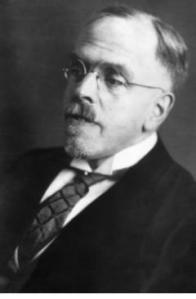Recently, while reading Dwight Moody Smith’s John Among the Gospels, I came upon a reference to an interesting book by Hans Windisch. Long out of print and never translated into English, Windisch’s seminal work, Johannes und die Synoptiker (John and the Synoptics: Did the Fourth Evangelist Want to Complement or Replace the Older Gospels? [1926]), stands as one of the earliest and most complete arguments for the Displacement theory. It’s odd that so many important critical twentieth-century works from the continent either never made it into English or were translated decades later.

I’ve ordered Windisch’s book and expect it to arrive in a few days. In the meantime, I’ve been scouring the web for references to Windisch and the Displacement theory, hoping to find out more. This search has led me to several other promising titles. For example, Steven A. Hunt’s Rewriting the Feeding of the Five Thousand, a recently published book that merits consideration (were it not for its astonishingly high price tag), explores the ways in which the fourth evangelist re-imagined the well-known picnic pericope.
The road to independence
Both Moody’s and Hunt’s works recapitulate the history of scholarship regarding John’s relationship to the Synoptics. Moody, of course, has much more detail; in fact Hunt cheerfully acknowledges Moody in his introductory chapter. Traditionally, of course, Christian scholars had espoused the Supplementation theory — the idea that John knew the three earlier gospels and merely intended to add to them. Beginning with Reimarus, scholars began to view only the Synoptics as containing useful historical information, while John represented a wholly theological work written by the early church “from faith to faith.”
Hence, John became thought of as independent of the Synoptics, but essentially not historical. Early in the twentieth century, scholars, especially C.H. Dodd, turned the Independence theory on its head. Yes, John is independent, they said; however the fourth evangelist’s independence of the Synoptics proves the author relied on a different, separate, authentic historical tradition.
Under the subheading “An Ironic Aside” Hunt writes:
Ironically, then, the Independence theory tore down the blinds, enabling scholars to once again view John as an “independent” source for information concerning the historical Jesus. . . . But the blinds torn down by the Independence theory were already being fitted to the windows in the time of Origen (d. 254) and were finally put in place by the project begun by Reimarus, Lessing, et al. Thus, the very movement which finally disallowed John as a historical source for the life of Jesus and which began the attack against the Supplementation theory in the first place ultimately led to the Independence theory. This theory, in turn, tore down the blinds and reopened the question of John’s value as a historical source. (pp. 16-17)
Tortured metaphors aside, Hunt makes an important point here. Scholarly consensus moved from (1) Supplementation to (2) Independence without historical value to (3) Independence with historical value. Alternatively, scholars like Windisch asserted that John did know the Synoptics and fully intended to correct and displace them.
“Fascinated by the prospect”
But in the main, NT scholars in the English-speaking world have ignored the Displacement theory, and have generally embraced Independence. Why? Hunt writes:
The fact that scholars departed from the traditional view [i.e., Supplementation] supplies the dramatic irony to these events. While many scholars adopted the Independence theory based on its merits alone, some accepted the theory because they were fascinated by the prospect of an independent Gospel serving as another means of getting back to the Jesus of history. (p. 16, emphasis mine)
That’s a rather sobering assessment. Vridar readers will no doubt recall that I have often accused today’s scholars of lazily presuming the independence of John because it serves “the greater good” — namely, providing an independent, “authentic” source of tradition about the historical Jesus. Reading a similar assessment from a non-amateur makes me think I haven’t been too harsh in my assessment.
If you enjoyed this post, please consider donating to Vridar. Thanks!

“Enigma of the Fourth Gospel” by Robert Eisler, 1938
9available here: http://archive.org/details/MN41506ucmf_0 )
(and here: http://www.scribd.com/doc/6429567/Reisler-The-Enigma-of-the-Fourth-Gospel-Its-Author-and-Its-Writer-1938 )
contains some interesting arguments and useful references.